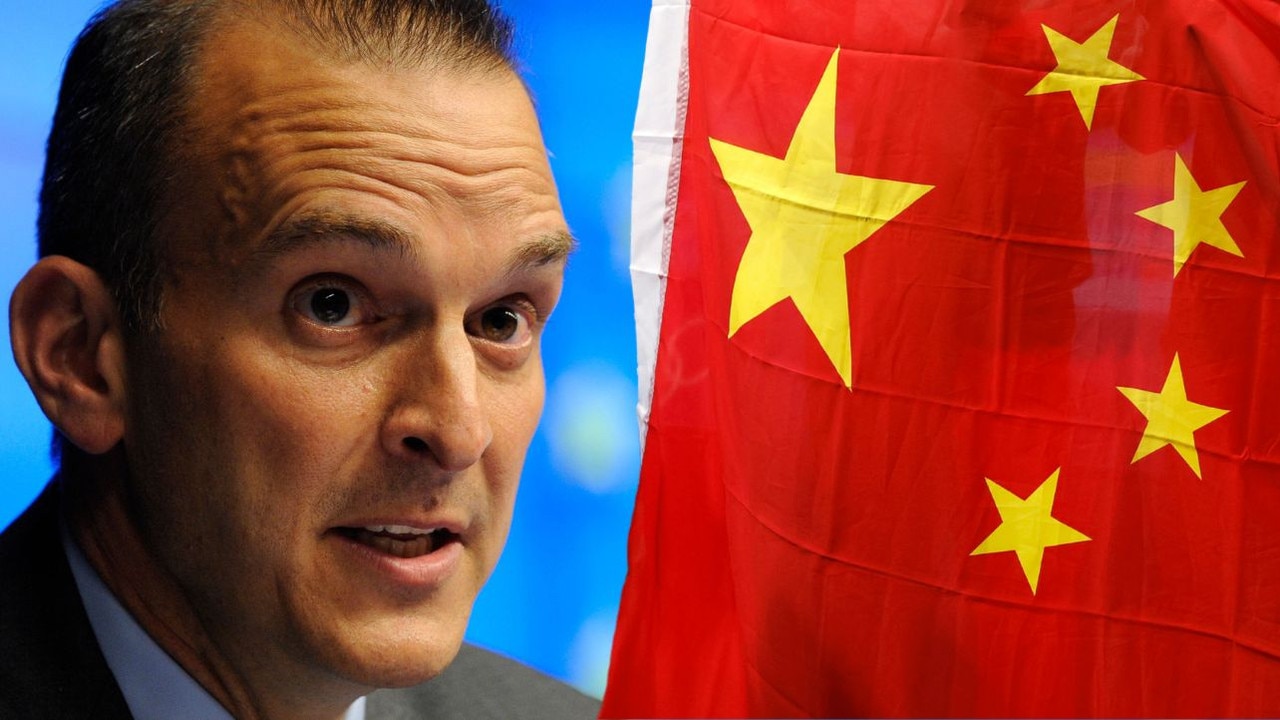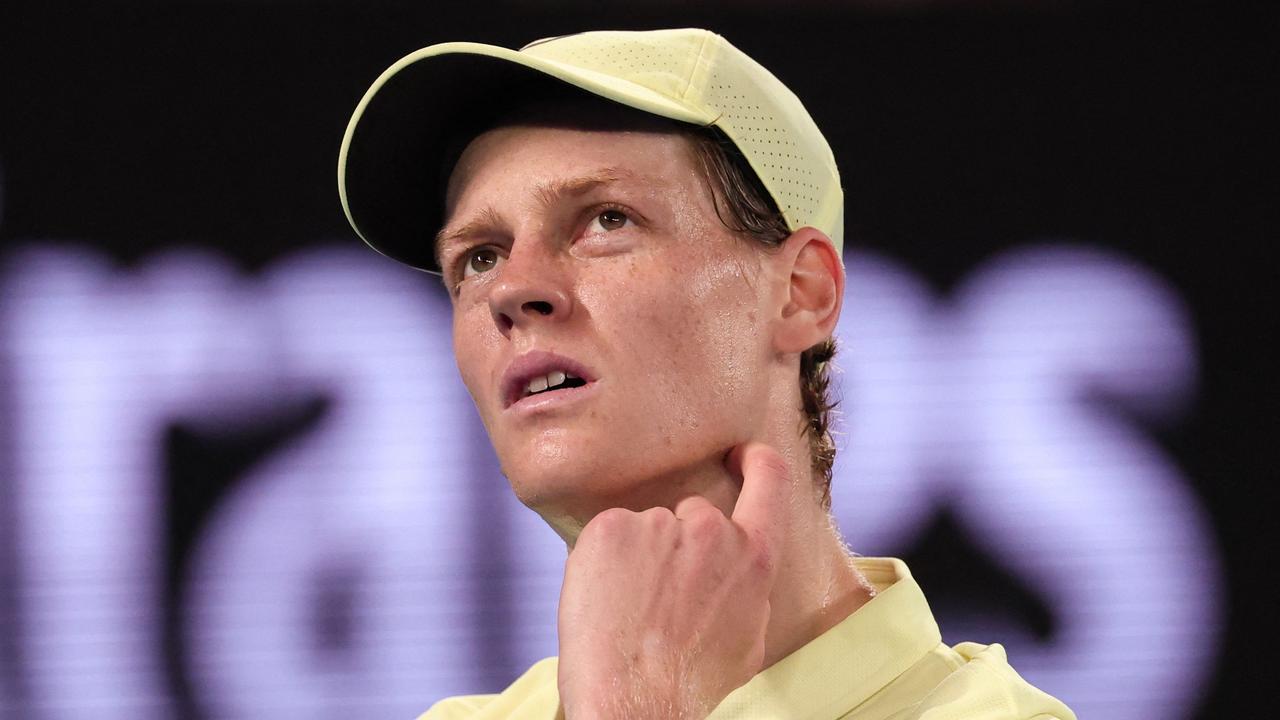Coco Gauff and Iga Swiatek are both athletes who care
Coco Gauff and Iga Swiatek are into the French Open final. They’re the best sorts of athletes. Athletes who care.

The following tennis folks have been getting it right lately: Coco Gauff, Iga Swiatek, the Wimbledon committee.
The following have been getting it wrong: the ATP, the WTA, Naomi Osaka, Amelie Mauresmo, Australian players who were knocked out of the French Open quicker than it takes to down an espresso and croissant on Rue d’Argout.
Let’s start with Gauff. If I were a professional athlete, you couldn’t shut me up about issues infinitely more important than the scoreboard at Roland Garros. I’d be telling Putin to stop murdering Ukrainians. I’d be telling Americans to stop shooting Americans. I’d be telling Albo to get the price of petrol under two bucks a litre before I start telling my daughter to walk to school.
So bravo to the 18-year-old Gauff, who reached the French Open final on Friday and wrote on a courtside television camera: “Peace. End Gun Violence.” She was hardly making the jackasses at the NRA fear for the future rights to bear their contemptible arms, but she was doing what she could.
Gauff faces Poland’s 21-year-old World No.1 Iga Swiatek in Saturday night’s decider. Swiatek is one of the few players still wearing a ribbon in the colours of Ukraine and while she knows it’s unlikely to make Putin call the whole thing off, millions of people watch this stuff so if you care about the world, why not talk about it?
Barty stuck to the tennis, playing a straight bat to political or humanitarian issues. Gauff and Swiatek are more willing to take a swing. “Yeah, it’s a grand slam final, but there are so many things going on in the world, especially in the US – I‘m not going to stress over a tennis match,” Gauff said.
Americans are still mopping up the blood from a gunman killing four people at a hospital in Tulsa, Oklahoma. Texas families continue to bury their dead after a school shooting last week took 19 young lives. The winning player from each match in Paris is invited to scribble something on the TV camera.
It’s normally Hi Mum and Dad. I Love Paris. Something like that. Gauff wanted to “get into the heads of people in office to hopefully change things”. Good luck with that, but the sentiment was admirable. The more Coco Gauffs in the world, the better.
Athletes should get involved. Talk up. If I was the winning State of Origin captain on Wednesday night, I’d be cutting Darren Lockyer’s post-match interview short and telling Albo what’s what. Why not?
“The first thing my dad said to me after I got off court was, ‘I’m proud of you and I love what you wrote on the camera,” Gauff said. “It just felt right in that moment to write that. I woke up this morning and I saw there was another shooting and I think it’s just crazy. I know people around the world are watching.”
Close friends of Gauff were at the Parklands school in Florida when 17 students were fatally shot by a teenage gunman in 2018. “Luckily they were able to make it out of it,” she said. “It’s so crazy. I was maybe 13 or 14 when that happened and still nothing has changed. Since I was younger, my dad told me I could change the world with my racquet. He didn’t mean that by like, just playing tennis. He meant speaking out on issues like this.”
Gauff turned 18 in March. She’s the youngest grand slam finalist since Maria Sharapova ambushed Serena Williams in the 2004 Wimbledon final. She clubs the ball and has a bit of sass.
Nerves made her spray a thousand unforced errors early in her 6-3, 6-1 semi-final victory over Italian Martina Trevisan, but she hung tough and was confrontational enough to complain about Trevisan’s grunting, which was clearly being exaggerated and prolonged to put the American off.
“Too loud or no?” Gauff asked umpire Marijana Veljovic. “I normally don’t care but when I’m hitting it, she is still screaming.”
Veljovic was given short shrift by Trevisan, who replied: “I think I’m all right. I don’t need to change anything.”
On reaching her first slam final, Gauff said: “I think I’m a little bit in shock right now. I didn’t know how to react after the match. I’m lost for words.”
Swiatek took her winning streak to 34 matches by swamping Russia’s Daria Kasatkina 6-2, 6-1 in just 64 minutes. The Pole’s passionate, energetic and almost studious on-court nature has made her a darling of the French crowd.
“I’m so grateful. It’s easier to play matches with this kind of support,” she said. “It’s surprising this week how much they’re supporting me. I try to treat every match in the same way because when I think about how it’s the biggest match of the season so far, it stresses me out.”
Swiatek has discovered something Australians have known for years. In anxious times, Acca Dacca cures all. “There are a few bands that I listen to before a match – Led Zeppelin, AC/DC and Guns N’ Roses,” she said. “They’re always the three that are really kind of perfect for the situation.
“I use music to kind of have something that’s going to get my brain busy and relaxed before the match. But also when I want to be more energetic, it really helps me.”
Meanwhile, back to the list of those getting it right and wrong. Without Barty’s involvement, the grim state of Australian tennis is being laid bare. Australia’s number of Roland Garros finalists is the same as the real winners in Johnny Depp versus Amber Heard. Zero.
Best male performance? Jason Kubler. He went all the way to round two. Best female? Daria Saville. Round three.
Only one Australian was entered in the junior boys singles. He lost his first match. One Australian reached the third round of the junior girls singles. There’s grumblings about Tennis Australia’s development programs being soft and inadequate.
The best chance of finding the next Barty is to talk the old one out of retirement. Queen Elizabeth wasn’t talking about the future of Australian tennis when she said, “As I look ahead with a sense of hope and optimism …”
Wimbledon got it 100 per cent right by banning Russian and Belarusian players from this month’s event. More sports should call for new balls, finding the courage to rail against humanitarian crimes.
The ATP and WTA have clumsily turned around and punished all the remaining players by stripping Wimbledon of its ranking points. As if Wimbledon cares. It’s Wimbledon. It doesn’t need the ATP or WTA. It’s the biggest, best and most prestigious tournament by the length of the Queen’s living room.
Osaka has dismissed the event as a meaningless exhibition without rankings points. That’s an insult to generations of past players who used to pay their own way simply for the honour of taking part.
Osaka says she probably won’t contest Wimbledon if she can’t get rankings points. That’s the only reason she goes? What a lack of understanding of the sport’s history and prestige.
The Wimbledon champion will still be the Wimbledon champion. Combined prizemoney of $60m still ain’t bad, including nearly $3m for the women’s singles champion. First-round losers stand to pocket $85,000, which is good news for the Australians.
Mauresmo is the ex-World No.1 who’s clumsily highlighted the lack of wow factor in women’s tennis without Serena and Venus Williams, Maria Sharapova, Barty and past leading ladies such as Steffi Graf, Monica Seles, Chris evert and Martina Navratilova.
Mauresmo scheduled only one women’s match for the prime-time evening slot before explaining the men’s tour was more interesting and entertaining.
“In this era that we are in right now, I don‘t feel – and as a woman and former player, I don’t feel bad or unfair saying that right now you have more attraction — can you say that? Appeal? — for the men’s matches,” she said.
Can you say that? Not really. Swiatek, in particular, was hurt.
“I want to say sorry to the players that really felt bad about what I said,” Mauresmo said the following day. In her defence, there was only one match per night at Roland-Garros and most patrons wanted a men’s fixture because it was best of five sets instead of three. And yet her reasoning sort of stung because it was sort of true – until the Swiatek versus Gauff final came along.
Here‘s a dream decider. The rivalry the WTA is banking on to last a decade.
Swiatek and Gauff are skilful, interesting and entertaining enough to carry the tour for the next decade.
It’s a personality-based sport and these young souls have it in abundance. Tennis needs them front and centre because the rest of the tour is starting to look rather bland.
Mauresmo is allowing them on to centre court, so there’s a start. Swiatek and Gauff are the best kind of athletes, athletes who care. They want to change the world in any small way they can … but first they need to rescue women’s tennis.





To join the conversation, please log in. Don't have an account? Register
Join the conversation, you are commenting as Logout